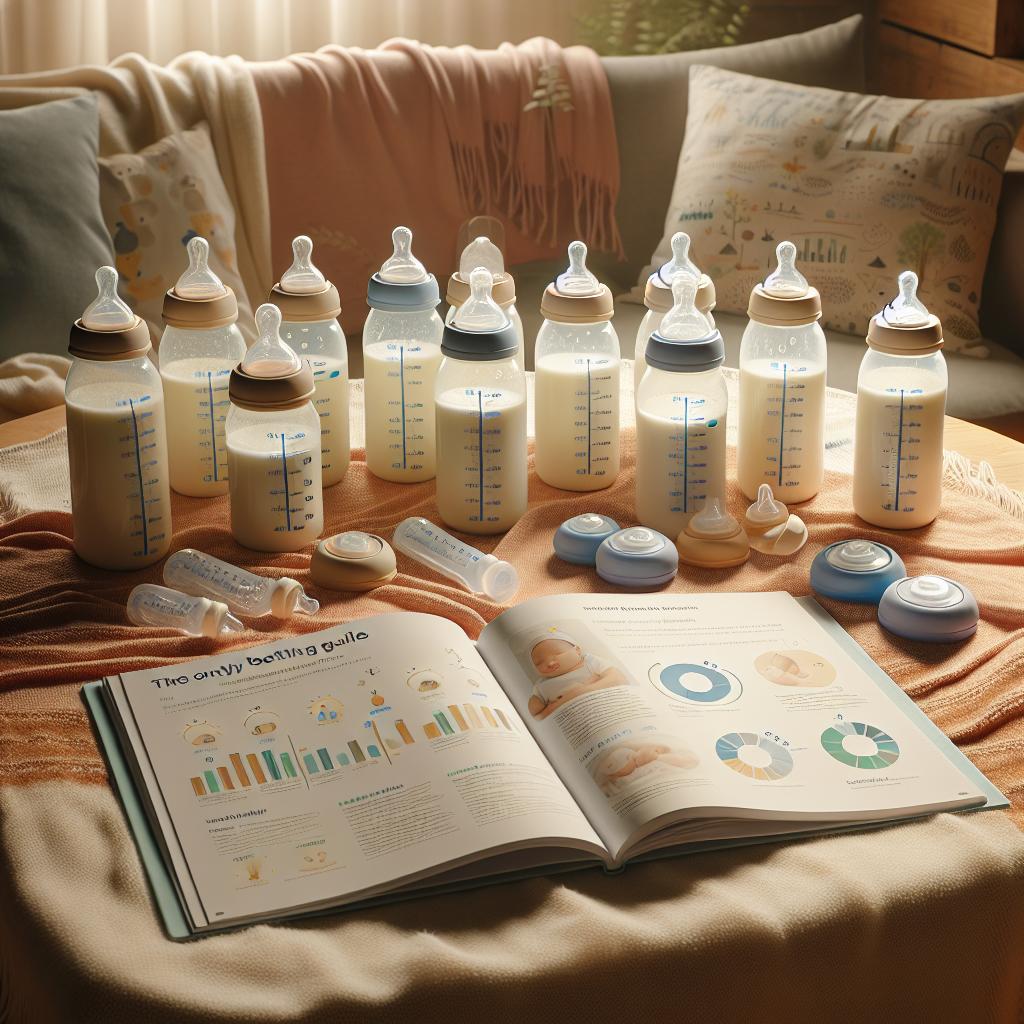Understanding Baby Bottle Refusal
When your little one begins refusing the bottle, it can set off alarm bells for most new parents. However, rest assured, baby bottle refusal is a common issue faced by many parents worldwide. It’s crucial to understand that each child is unique and that there may be a variety of reasons behind their hesitation. This post will help you understand why your baby may be refusing the bottle and provide insights on how to solve feeding issues.
Common Causes of Baby Bottle Refusal
Multiple factors can contribute to your baby refusing their bottle. Below are some of the most common reasons:
- Preference for Breastfeeding: Sometimes, babies simply prefer breastfeeding over the bottle. They may find comfort in being close to their mother and the natural feel of breastfeeding. This preference can be especially strong if they’ve been breastfed exclusively until now.
- Nipple Confusion: The difference between a breast and a bottle’s nipple can be confusing for babies, leading them to reject one in favor of the other.
- Feeding Position: Babies might also have a preferred feeding position. Some may be more comfortable nursing in a reclined position, while others may prefer being upright.
- Frustration or Pain: If your baby associates feeding with discomfort due to teething or colic, they could start refusing the bottle.
How to Solve Feeding Issues
When it comes to baby feeding solutions, patience and understanding are key. There are multiple strategies you can adopt to encourage your baby to accept bottle-feeding.
- Introduce the Bottle Gradually: A sudden change from breastfeeding to bottle-feeding can be unsettling for babies. Therefore, introducing the bottle gradually, maybe for one meal at a time initially, could help ease the transition.
- Experiment with Different Nipples: If your baby is experiencing nipple confusion, try different types of bottle nipples. Some are specifically designed to mimic the feel of a breast, which might help your baby accept the bottle.
Incorporating these strategies can make feeding time enjoyable for both you and your baby. For more tips on how to choose fun and functional baby bottles, check out this article.
Don’t Hesitate to Seek Professional Advice
If your baby continues to refuse the bottle, it could be due to an underlying health issue. In this case, it’s important to consult with a medical professional. Resources such as La Leche League and HealthPartners provide valuable advice on dealing with bottle refusal. They also offer practical tips for introducing bottle-feeding in a way that is comfortable for both mom and baby.
No matter what, remember that baby bottle refusal is a common issue and one that can be resolved with the right techniques and a lot of patience. You are not alone in this journey and many resources are available to help.
Additional Factors that Contribute to Bottle Refusal
In addition to the common reasons mentioned earlier, your baby may be refusing the bottle due to various other factors. Take a look at these additional factors that need to be considered:
- Teething: If your baby’s gums are swollen or tender, they may refuse the bottle. Teething can cause discomfort, and sucking on a bottle can exacerbate this pain.
- Illness: If your baby is suffering from a cold, ear infection, or other illness, they might refuse the bottle. Swallowing can be painful when they’re sick, potentially leading to bottle refusal.
- Unpleasant Taste or Smell: Certain medications can alter the taste of breast milk or formula, and your baby might reject the bottle as a result. Additionally, the smell of certain plastic bottles can be off-putting for babies.
Using Resident Relief Techniques
Bottle refusal can be distressing for both you and your baby. Here are some soothing techniques that can help make the process easier:
- Play with the Baby: If the baby seems agitated or upset, take a break from feeding and engage them in a playful activity. Once they’re calm and distracted, you can try to reintroduce the bottle.
- Swaddle the Baby: Swaddling your baby may provide them with a sense of security and comfort, making them more likely to accept the bottle.
- Change the Environment: Trying to feed the baby in a new environment can sometimes alleviate bottle refusal. The change of surroundings may distract them, and with luck, they’ll happily accept the bottle.
Although these techniques may not cure bottle refusal immediately, they can help create a more relaxed environment for feeding. For expert advice on dealing with baby bottle refusal, consider seeking guidance from websites like Healthline, WebMD, Parents and FeedEatspeak. These resources provide factual and helpful guidance to new parents.
Remember, You’re Not Alone!
Bottle refusal is a common issue faced by many parents, and it’s essential to remember that you’re not alone. It’s okay to ask for help and seek advice. Use your support system, talk to other parents, and don’t hesitate to reach out to healthcare professionals. They can provide you with strategies and tips specifically tailored to your baby’s needs.
Baby bottle refusal can be stressful, but with patience, understanding, and the right techniques, you and your baby can overcome this challenge. Remember: every baby is unique and what works for one may not work for another, so be patient and keep trying different solutions. It will get better.







